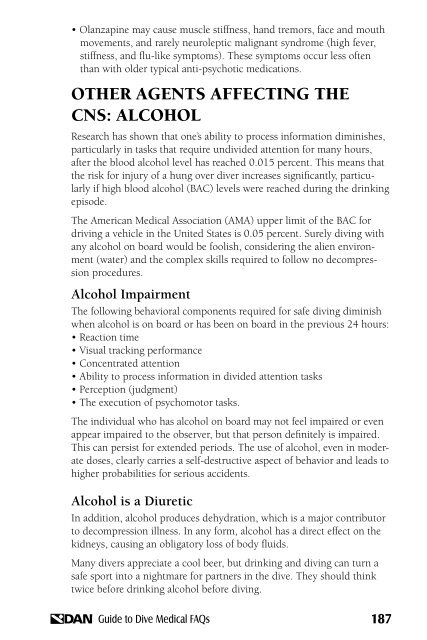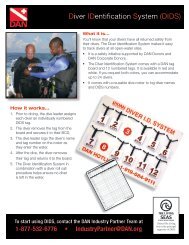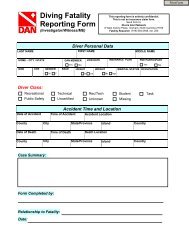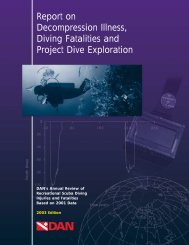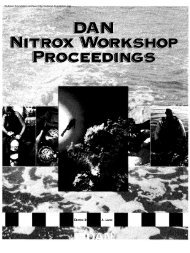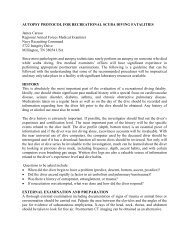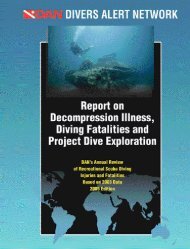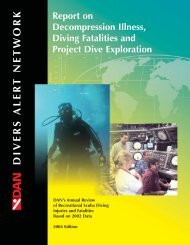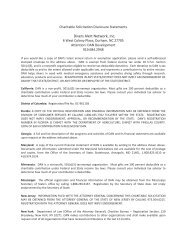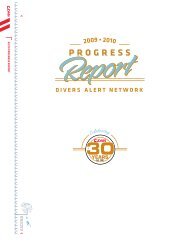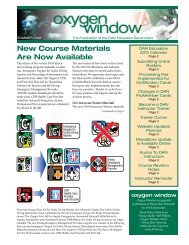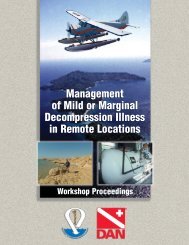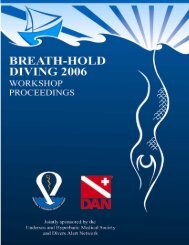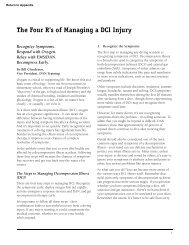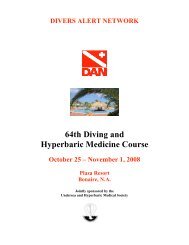Create successful ePaper yourself
Turn your PDF publications into a flip-book with our unique Google optimized e-Paper software.
• Olanzapine may cause muscle stiffness, hand tremors, face and mouth<br />
movements, and rarely neuroleptic malignant syndrome (high fever,<br />
stiffness, and flu-like symptoms). These symptoms occur less often<br />
than with older typical anti-psychotic medications.<br />
OThEr AGENTS AFFECTiNG ThE<br />
CNS: ALCOhOL<br />
Research has shown that one’s ability to process information diminishes,<br />
particularly in tasks that require undivided attention for many hours,<br />
after the blood alcohol level has reached 0.015 percent. This means that<br />
the risk for injury of a hung over diver increases significantly, particularly<br />
if high blood alcohol (BAC) levels were reached during the drinking<br />
episode.<br />
The American Medical Association (AMA) upper limit of the BAC for<br />
driving a vehicle in the United States is 0.05 percent. Surely diving with<br />
any alcohol on board would be foolish, considering the alien environment<br />
(water) and the complex skills required to follow no decompression<br />
procedures.<br />
Alcohol Impairment<br />
The following behavioral components required for safe diving diminish<br />
when alcohol is on board or has been on board in the previous 24 hours:<br />
• Reaction time<br />
• Visual tracking performance<br />
• Concentrated attention<br />
• Ability to process information in divided attention tasks<br />
• Perception (judgment)<br />
• The execution of psychomotor tasks.<br />
The individual who has alcohol on board may not feel impaired or even<br />
appear impaired to the observer, but that person definitely is impaired.<br />
This can persist for extended periods. The use of alcohol, even in moderate<br />
doses, clearly carries a self-destructive aspect of behavior and leads to<br />
higher probabilities for serious accidents.<br />
Alcohol is a Diuretic<br />
In addition, alcohol produces dehydration, which is a major contributor<br />
to decompression illness. In any form, alcohol has a direct effect on the<br />
kidneys, causing an obligatory loss of body fluids.<br />
Many divers appreciate a cool beer, but drinking and diving can turn a<br />
safe sport into a nightmare for partners in the dive. They should think<br />
twice before drinking alcohol before diving.<br />
Guide to Dive Medical FAQs<br />
187


